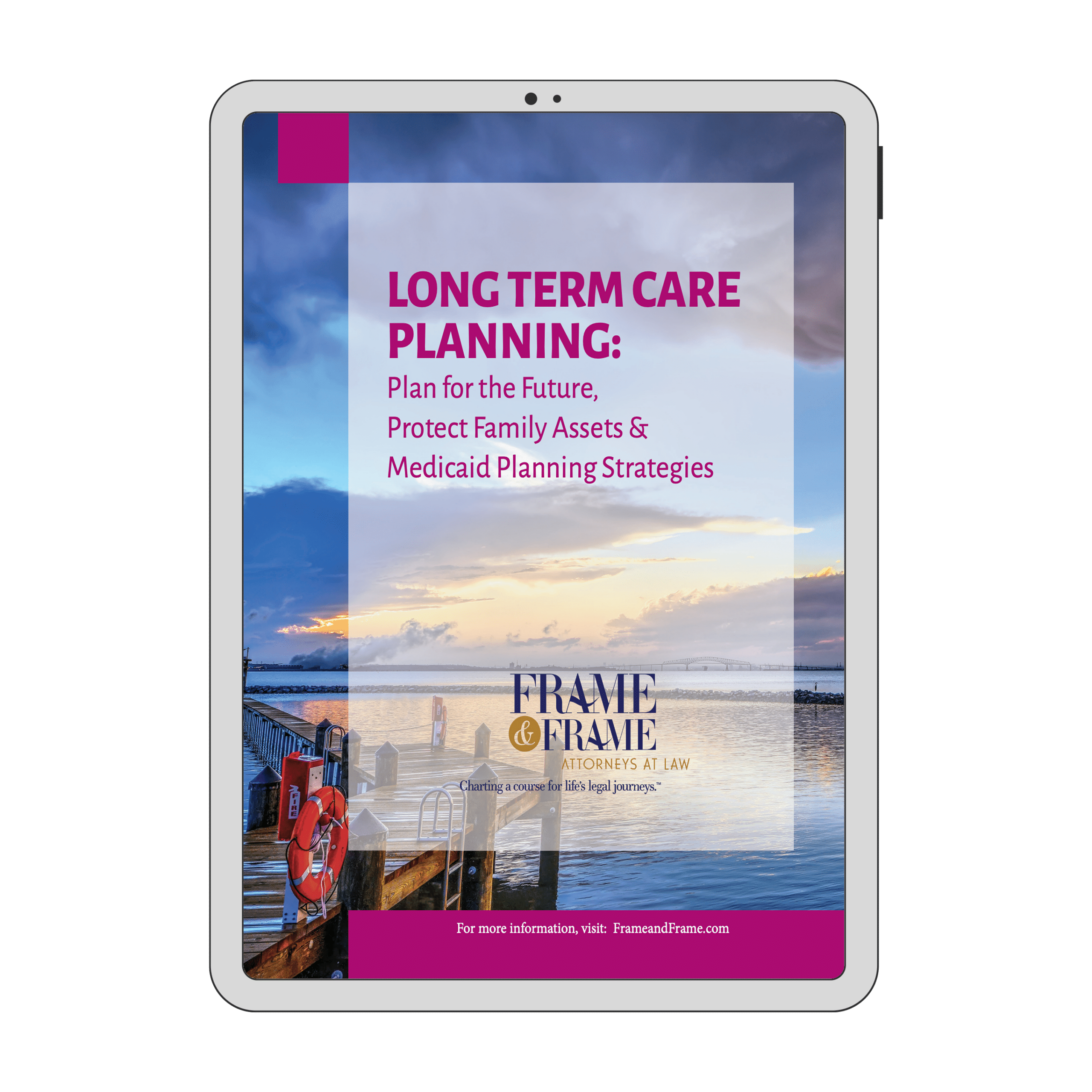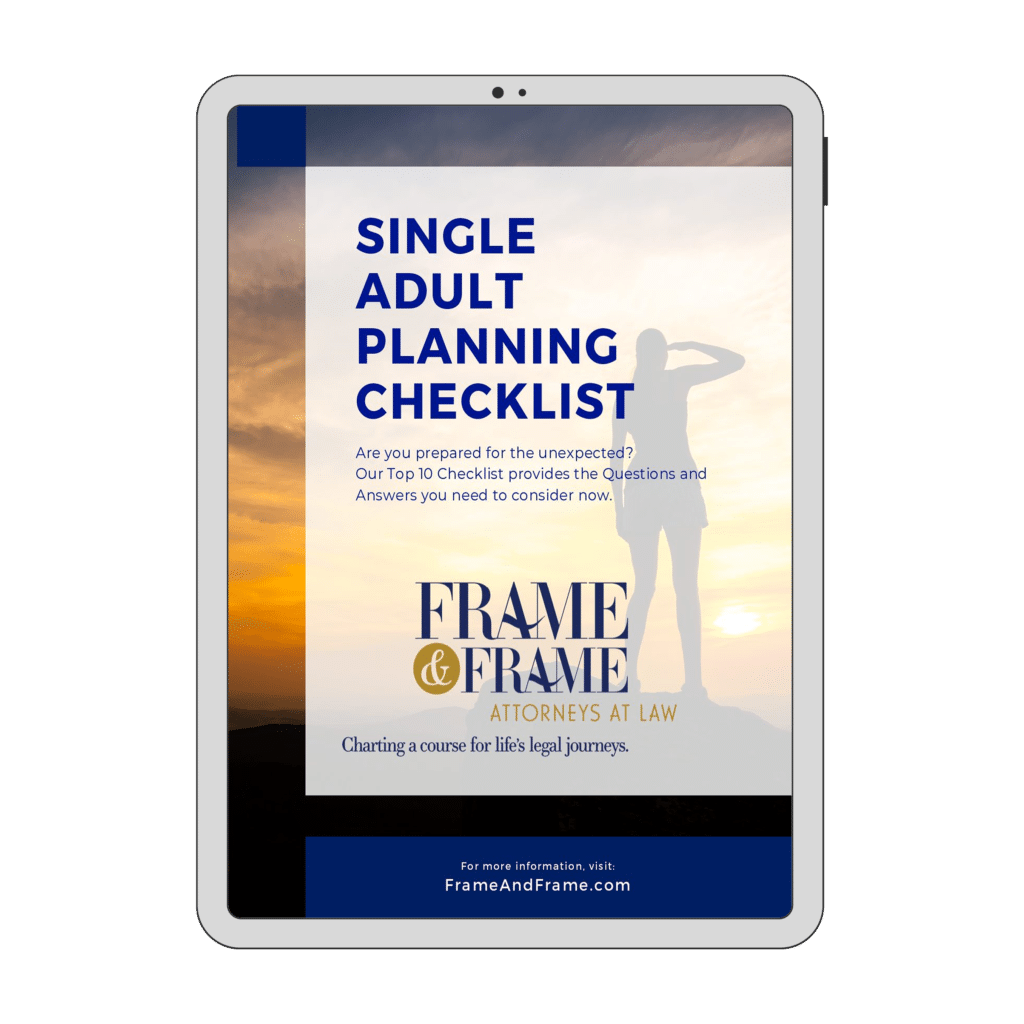Free Guides
Free Guides
Long-Term Care & Medicaid Planning
Learn why:
- What is the Medicaid 5-year look-back requirement?
- Is Estate Planning the same as Long-Term Care Planning?
- How can I provide for a spouse or partner and the lifestyle they’re accustomed to?
To download the free guide, please complete the form below.

WILL YOUR LIFE-SAVINGS & CHILDREN’S INHERITANCE BE SPENT ON LONG-TERM CARE?
As we get older, more than 70% of seniors will require some form of long-term care. The median cost of skilled nursing home care in Maryland is nearly $10,000 per month. And, unfortunately, Medicare does not cover the costs associated with long-term care services. These costs can quickly diminish a life time of savings. That’s why long-term care and Medicaid Planning is key.
Thinking about the need for long-term care may be uncomfortable. Thinking about how you are going to pay for it can be even more unsettling. This guide shows you strategies for long-term care, Medicaid planning, and other tools and legal instruments that can help you avoid any crisis.
MEDICAID VS. MEDICARE
As part of Medicaid planning, we address the Medicaid five year lookback requirement so that, if you are in crisis, we can provide strategies to help you qualify for Medicaid services and address your future needs. In this guide, we discuss the options for long-term care and Medicaid planning and answer questions like:
- What is the Medicaid 5-year look back requirement?
- Is Estate Planning the same as Long-Term Care Planning?
- How can I provide for a spouse or partner and the lifestyle they’re accustomed to?
- How can I obtain long term care services while preserving family assets?
- Will you be eligible for Medicaid?
- Will your savings and/or family’s inheritance have to be spent?
FOR ADULT CHILDREN WITH SENIOR PARENTS
As your parents mature into their senior years, the family dynamics are changing too. For so many years, they have nurtured and cared for you, and now the tables are beginning to turn. While this dynamic is constantly changing, there are conversations and considerations that can make these transitions easier for all family members involved. But, there are some pretty big questions that we commonly hear:
- We can’t afford $10,000/mo for long term care. How will my family pay for long-term care costs?
- Will mom or dad (the healthy or surviving spouse) have enough to live on?
- Will all of my parent’s life savings (my inheritance) be spent on medical bills?
These are important questions, but many families do not have these conversations until there is a health crisis. More importantly, many families don’t understand that an estate plan does not typically address the specific concerns associated with long term care costs (refer to the checklist on page 11).
ESTATE PLANNING IS NOT LONG-TERM CARE PLANNING
An estate plan only addresses the estate or assets, after death. Long-term care planning ensures that the estate (and a person’s life savings) is not completely exhausted by long-term care costs, while they are living. The good news is that there is a lot that can be done, years ahead of time, to ensure that the spouse, children, and assets are protected from the costs of long term care. You can begin the conversation with this free legal guide to help ensure that all members of the family understand the impact of long-term care on family assets.
The Elder Law Attorneys at Frame & Frame are experienced in all aspects of Medicaid and Long-Term Care planning strategies. Contact us today!
How Can We Help?
Do you have more questions?
Contact the experienced attorneys at Frame & Frame to schedule a private consultation to discuss your concerns.
Not Sure Where To Start?
Download one of our free LEGAL guides



